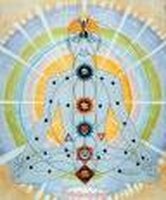The first type of stress is related to the external events that you react to. These can be environmental, interpersonal, family or job related. These factors need to be eliminated or a means developed to reduce their impact. This type of stress is called the 'stressor'.
The second type of stress is your reaction to the stressor. This is important, because how an event is interpreted determines much of your physiological response. For example, you respond differently to an event you perceive as a threat than to an event you perceive as positive in nature.
The third type of stress is the change in your physiology over time, as your body reacts to the stressor. Your body's initial stress response can become a habit in a relatively short period of time. Unless you are aware that you are forming a stress induced habit and you consciously work to return your physiology to normal, the habit becomes chronic.
Helping patients learn relaxation techniques for stress reduction and pain management is based on the concept of the mind-body connection: Whatever relaxes the musculature produces mental relaxation and vice versa.
Since the relaxation response counteracts the stress response, it is impossible to be both relaxed and tense at the same time. The relaxation response can reduce existing distress and eventually decrease its effect. Progressive muscle relaxation is a simple and effective way to help patients learn how to relax.
For more information please visit http://www.colletthumanservices.ca
